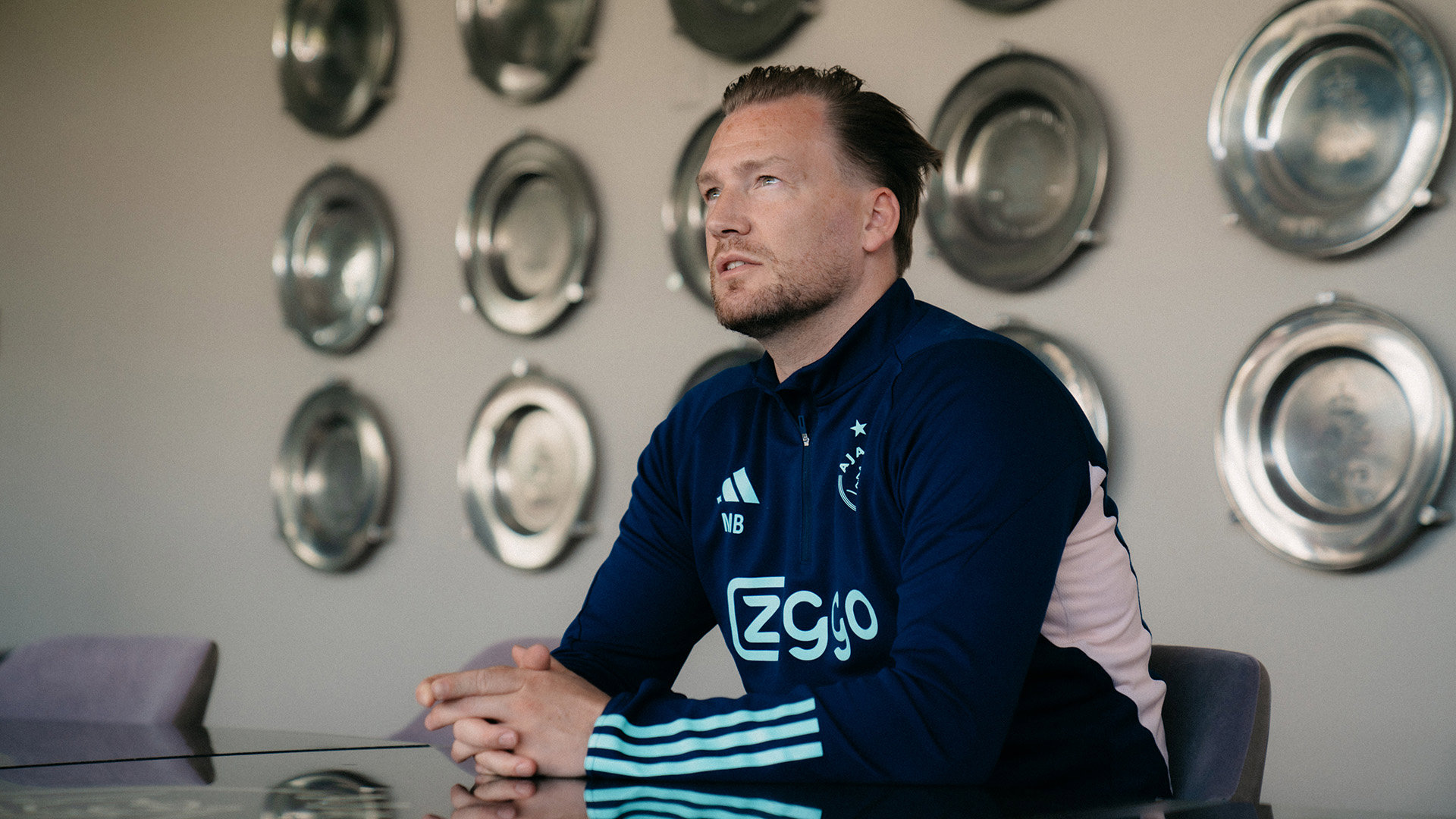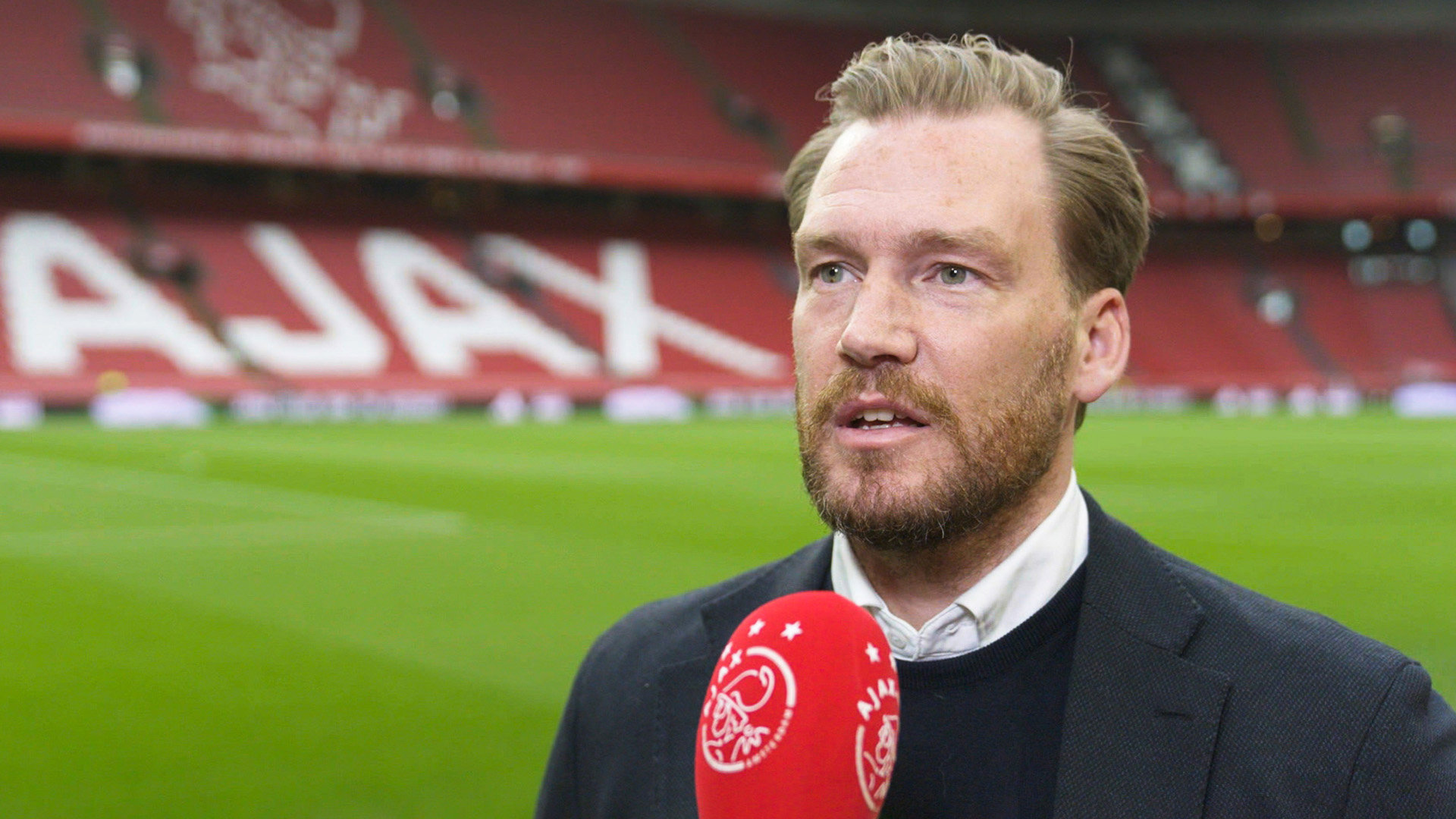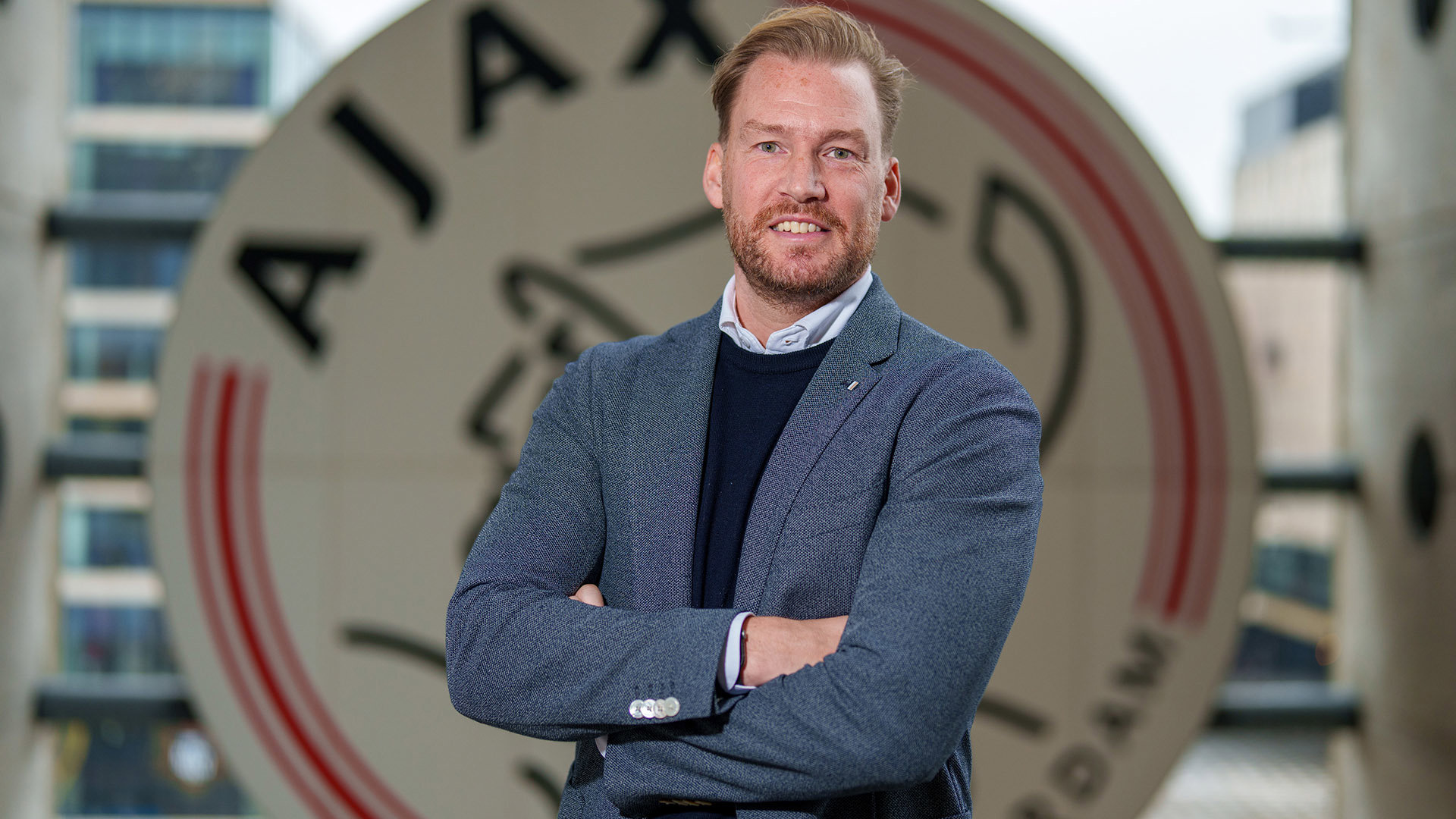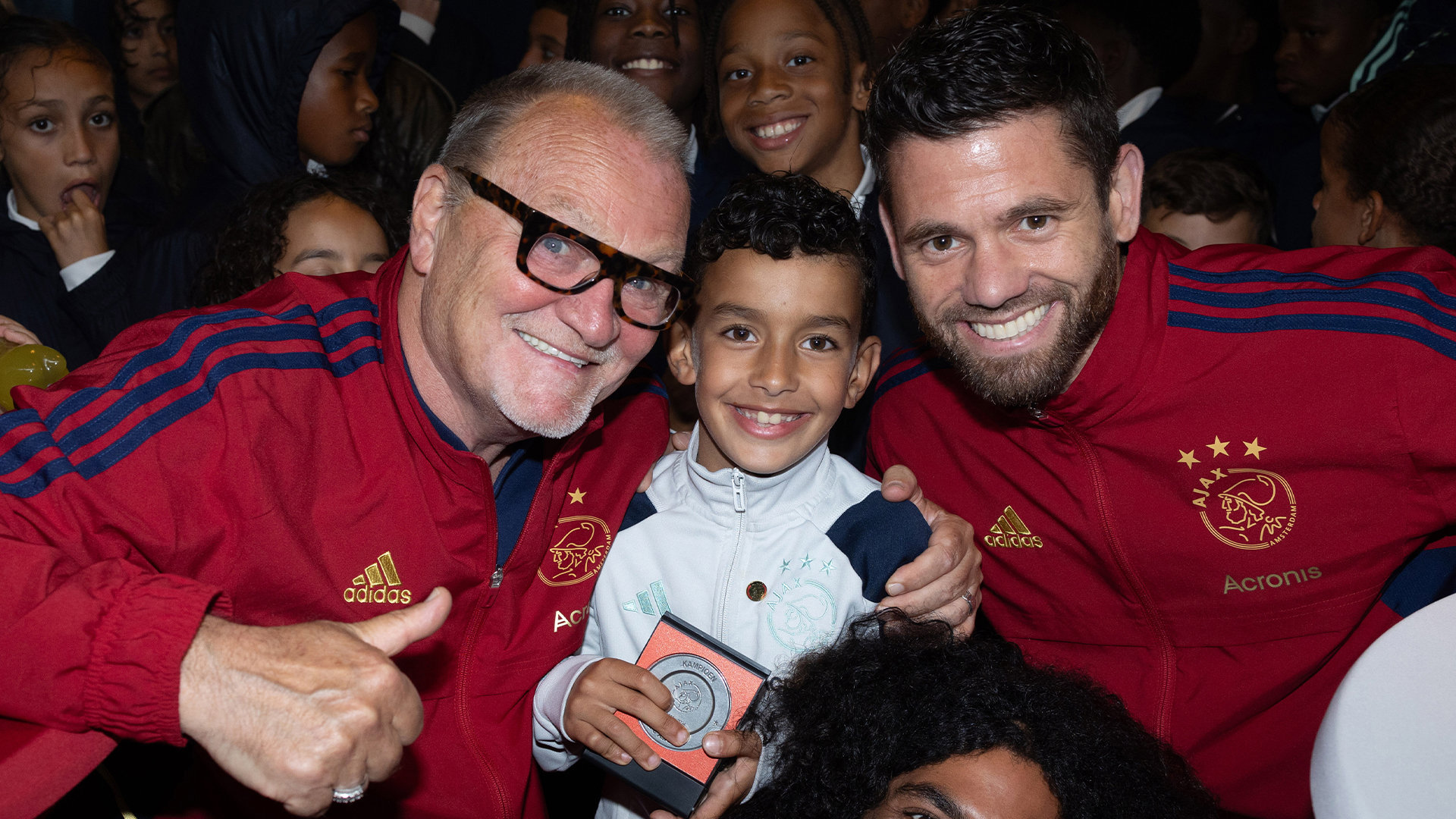Beuker's first six months were not the most quiet ones in the history of Ajax. Despite that, he is satisfied. "I like it here: there is a lot of work to do, and it's a fantastic club to work at. The people that work here have a heart for the club and the drive to make Ajax, Ajax again", he says calmly.
"But I have seen a lot of room for development." During his first months in Amsterdam, getting acquainted and observing were key for Beuker. "It's easy to have an opinion, but I first wanted to understand why things happened and the reasoning behind it. That means you need to have a lot of conversations, and you have to observe the work in practice."
This gave Beuker the time to figure everything out. "That's how we were able to make a plan. Some things aren't good and have to be improved or changed. Some things are good, and we will continue that. We have worked intensively together to clarify the processes over the last few months. The main focus is football: the first team, scouting and the academy. Then come the other supporting departments."
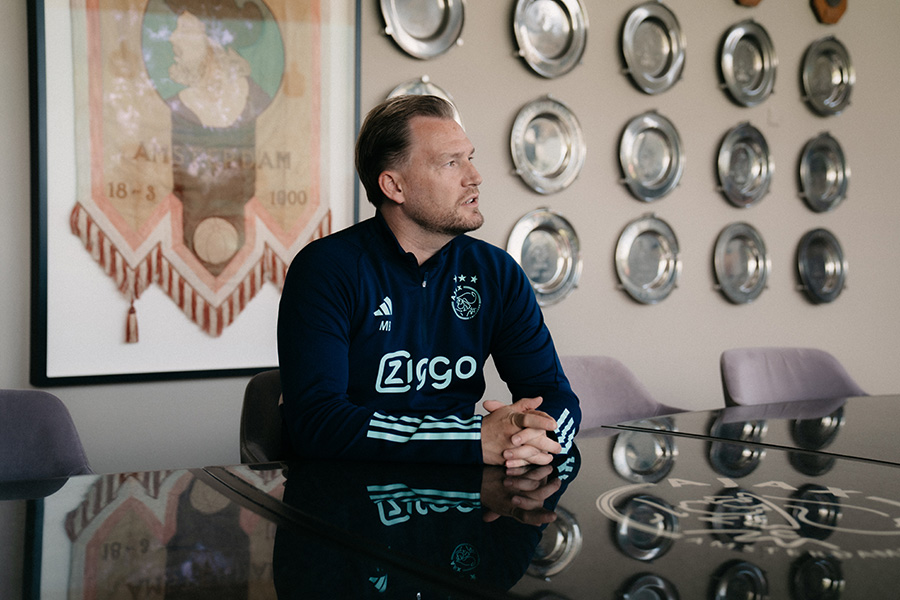
Progression
Beuker leaves a pause and continues talking about the 'process', a word that describes his way of working. "What is Ajax football, down to the details? How do you develop Ajax players in that? What does that mean for the curriculum in the lower, middle, and upper youth levels? How do we want to train that? We have discussed these topics with the coaches and have been implementing them in practice over the past few weeks. Everything follows a specific method, so everything from the U8s to the first team is done the same way. But that doesn't mean the effect on players is immediately visible. Educating and developing is a long-term endeavour. It's a marathon, not a sprint. The way of working should ensure slow progression because that is the best kind of progression. Quick success is not the best success, I always say."
According to him, the description of an Ajax player is clear: "Technical mastery and extraordinary game intelligence." In the lower youth levels, the focus is on the latter. "There will be more emphasis on situations where technique is controlled, both in isolation and integrated. We have a training methodology that makes players proficient in all possible skills. We don't want 'standard products' in the academy," Beuker states. "It's important not to specialise too early and not to create weapons too quickly, but to ensure they receive broad training. That stimulates creativity and problem-solving thinking. I am very enthusiastic about the coaches in the lower levels who were already doing this, and we think we can take another step forward here."
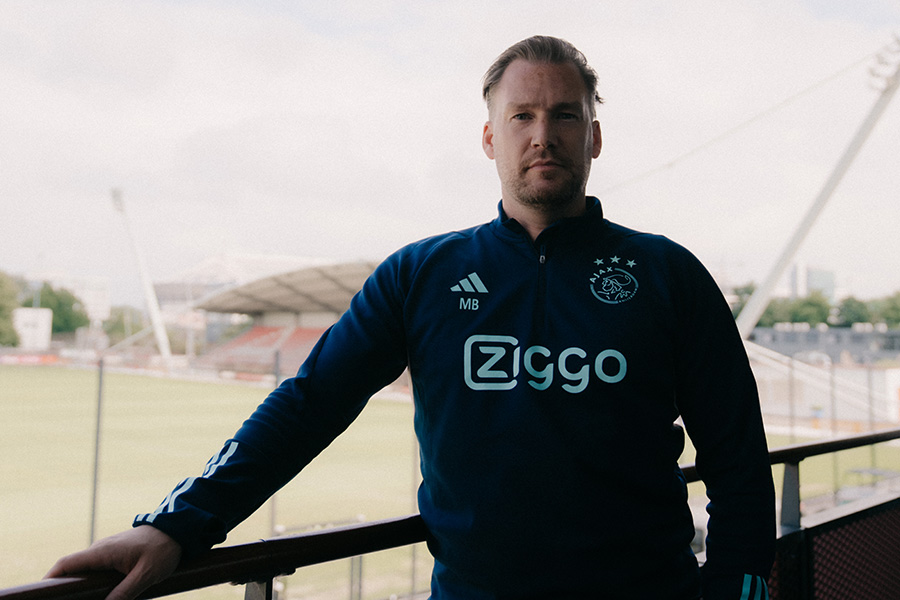
The plans of De Nieuwe Toekomst fit perfectly with the ideas of Beuker and his team. "One of our ambitions is to make this one of the best functional complexes in the world. Many facilities are luxurious, but Ajax's must perfectly support our program. This includes surfaces such as streets, indoors, sand, and gravel. Developing a soft touch works best on imperfect surfaces."
Game intelligence
Behind him on the board are the words: 'I teach you to do it yourself.' "Menno Geelen recently shared this quote. I think it is very appropriate for how we view development," says Beuker as he turns back to the table. "This fits well with the way we will sharpen things surrounding game intelligence in the middle levels," says Beuker about the second important characteristic of an Ajax player. "Ajax football is about making sure players recognise all football behaviours. To rule time and space but find solutions yourself. Players must be technically and insightfully strong in every scenario. Our role is more guiding than providing."
Beuker also believes that the intensity of the game needs to increase. "This means that players must deliver more qualitative actions. But more importantly, they must maintain this level of qualitative actions throughout a match. Ultimately, this means 55 matches per season, 95 minutes per match. This demands something from the muscles and the brain, and I see that we can make huge strides in this area. According to us, it's crucial that players get used to this intensity from the U15/U16 age groups onwards."
Beuker continues to talk about game intelligence, in which variation and distributed repetition play an important role. "We need to put players in situations that are at least as unpredictable as in matches. That means they must be able to play Ajax football under many circumstances. Vary a lot, and each repetition must be different. Players must solve the puzzle themselves, and coaches must create the conditions. Players must not play on autopilot. Some of these principles come from street football culture. We want to put that old-fashioned culture in a new jacket."
"It is now really becoming the Ajax methodology," Beuker states when asked about the phase the club is currently in. "Coaches have provided a lot of input at a detailed level, so they have had their say and can share their expertise to fine-tune the multi-year plan. With that guideline, we are now getting to work together. A coach working here cannot do whatever they want. If that happens, islands form and everyone fills it out differently. Coaches certainly get freedom and space but within the structure and frameworks of the club. That is indeed a change."

Togetherness
While the competitions are over, the teams started last week with the 'new way of working', as Beuker describes. The teams train for a few weeks in the new season's composition before the vacation begins. "To ensure that the coaches use the program well in practice, I will be on the field a lot in the coming time, along with Joost van Dam (Head of lower youth levels) and Stef Wijlaars (Head of middle/upper youth levels). Observing, giving feedback, and evaluating with all the coaches creates a culture where we continuously seek to improve."
"In modern times, you cannot lead an academy with only one person. With these two 'heads', Casimir Westerveld, who manages the entire academy, and all of the technical staff, we can take education to another level. We want to make the club more forward as a whole and have a culture that comes first with top sports. We always want to aim for the highest possible and invest in people, relations and growth."
Staff composition
Another essential part of Beuker's desired process is the technical staff in the youth academy, which complements each other. "You look for people who fit the vision and make that clear from the start. In recent months, we have also been working to create optimal staffing."
"Alex Kroes and I find the right composition of the staff around a team essential," he continues. "We wanted to have a combination of a didactically trained person and someone who knows the details of being a professional in all departments. Therefore, at all teams, combinations have been made of a head coach who focuses on methodology, team leadership, and overseeing the big picture. This is supplemented by an assistant who knows from experience what is required in terms of culture and details in professional football."
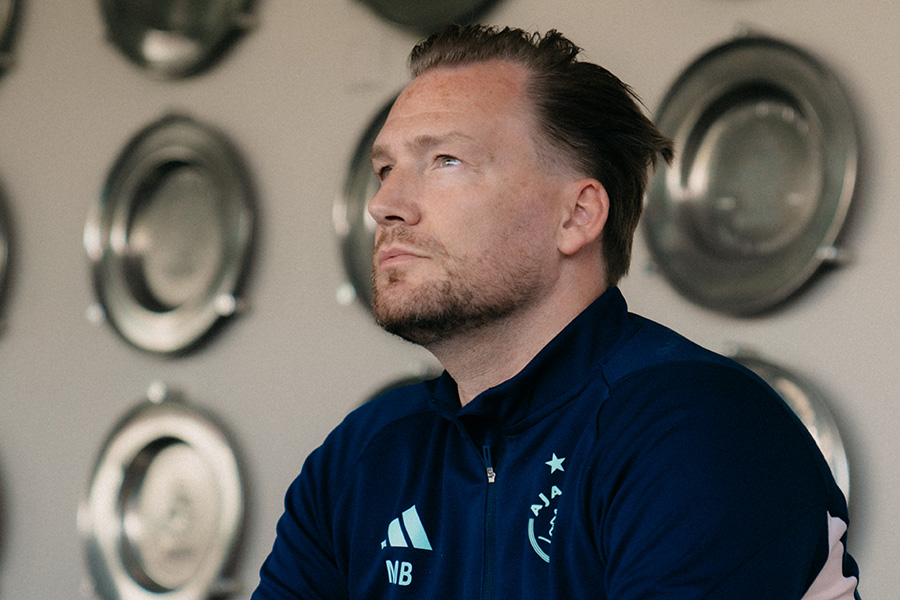
Winning vs developing
This should lead to development and trophies in the long term. "Winning and development go together fine. Nowadays, it almost feels like 'winning' is a dirty word. At the same time, that’s where the pristine playing and discovering is. At Ajax, teams must always play for the championship and enter the pitch with that mindset."
"But for us as technical staff, it doesn't necessarily mean we make choices to become champions. That's the case when you prefer the short term over the long term. Winning is the result of a fantastic process. What we do must be of the highest possible quality, from the first team to the U8s. If we do that, winning becomes a consequence. And from there, you want as many talents as possible to break through to Ajax 1 and European top competitions," concludes Beuker.
